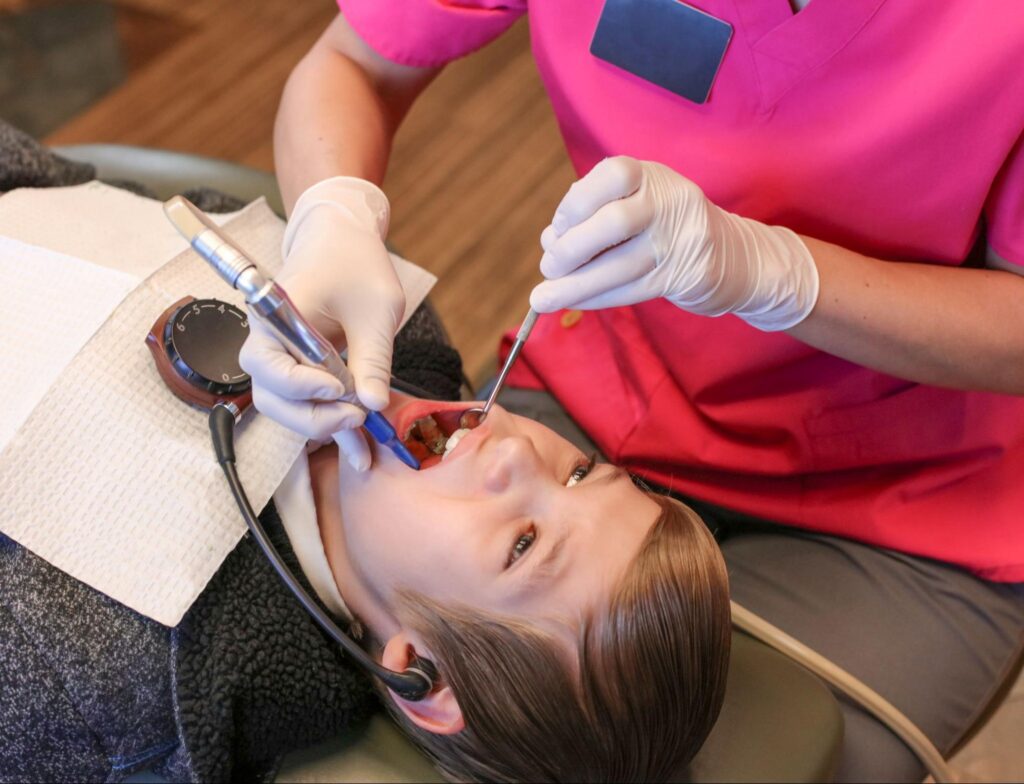When it comes to dental emergencies, knowing how to respond can make all the difference in preserving your child’s oral health and your peace of mind as a parent. Our Cashmere Family Dentistry team has always placed an emphasis on patient education, but this is a topic we particularly care about. We’re going to tell you the best ways to handle dental emergencies for kids.
Better Safe Than Sorry
We want to preface this blog by saying that when in doubt regarding a child’s dental emergency, it’s always a good idea to give our office a call at 509-782-2516. This way, Dr. Janie or Dr. Ryan Busk can have an idea of the situation and direct you to the correct next steps.
For more information on what constitutes a dental emergency vs urgent dental care, you can refer to this infographic from the American Dental Association.
When Can You Treat It at Home?
The good news is that not every dental concern automatically warrants a trip to the office. Here’s how to handle some common scenarios at home until you can get professional care:
- Minor Toothache: Rinse with warm water and floss gently to remove food debris. Avoid applying aspirin directly to gums. Call if pain persists.
- Small Chip or Crack: If there’s no pain, it’s usually safe to wait until regular hours. Avoid hard foods and keep the area clean.
- Mild Soft Tissue Injury: Rinse the mouth with saltwater and apply a cold compress. See us if bleeding continues beyond 10–15 minutes.
When Should You Call Right Away?
Always contact us immediately if:
- Your child has a knocked-out or partially dislodged tooth.
- There is excessive bleeding or trauma to the mouth or jaw.
- You notice signs of an abscess, such as facial swelling or fever.
- Your child is experiencing severe tooth pain or discomfort with no obvious cause.
Timely treatment can help us save the tooth, prevent infection, and reduce the risk of dangerous complications.

Safety Tips for Preventing Pediatric Dental Emergencies
While not every dental emergency is avoidable, a few proactive steps can dramatically lower your child’s risk of experiencing one. Prevention usually starts at home, and a combination of safe habits and regular checkups can go a long way in keeping your child’s smile safe.
- Use a mouthguard: Always have your child wear a mouthguard during sports or activities that pose a risk of facial impact. This device often single-handedly prevents broken teeth, soft tissue injuries, and even jaw damage.
- Supervise younger children: Toddlers and young children should always be monitored during play and while brushing to avoid falls or accidents involving toothbrushes or toys.
- Teach safe habits: Instruct your child not to use their teeth as tools for opening packages or biting hard items like pencils, fingernails, or ice. These habits are common causes of cracked or chipped teeth.
- Avoid risky foods: Limit sticky candies, hard nuts, and other foods that could loosen dental work or get lodged between teeth. Encourage safer snacks like cheese, yogurt, and fruits, cut into manageable sizes. Any changes in diet might take some getting used to, but they’ll grow accustomed to it soon enough.
- Stay consistent with dental visits: Routine cleanings and exams using the latest dental technology help us detect potential issues early, like weak enamel or cavity-prone areas, so we can treat them before they become emergencies.
Responding to Your Questions
Hopefully, your child won’t experience any dental emergencies, but understanding the high risk factors around this age group can go a long way.
Q: Is a baby tooth injury considered an emergency?
It can be. While baby teeth are eventually lost naturally, injuries to them can affect the developing permanent teeth underneath. If a baby tooth is knocked out by force, shifted, or is causing pain or bleeding, you should still call us. We can evaluate whether any further attention is needed.
Q: What should I do if my child knocks out a permanent tooth?
Stay calm and act quickly! Pick up the tooth by the crown (not the root), rinse it gently with water—no scrubbing or soap—and try to place it back in the socket if possible. If that’s not an option, store it in milk or your child’s saliva and get to our office immediately.
Q: Should I take my child to the ER for a dental emergency?
Our office is usually the best first call you can make. However, if your child has uncontrollable bleeding, facial trauma, difficulty breathing, or swelling that affects the eyes or throat, head to the emergency room immediately.

Taking Appropriate Action
Cashmere Family Dentistry is here to help when things don’t go according to plan. Take comfort in the fact that you have us in your corner if you live in Cashmere, WA. We’ll see you soon—hopefully under happy circumstances!




